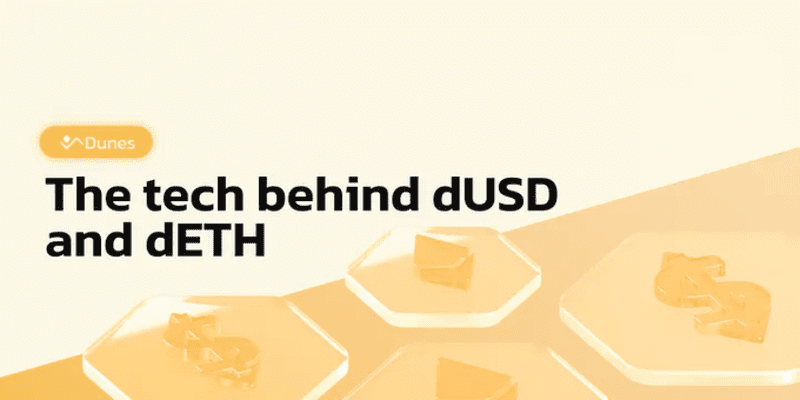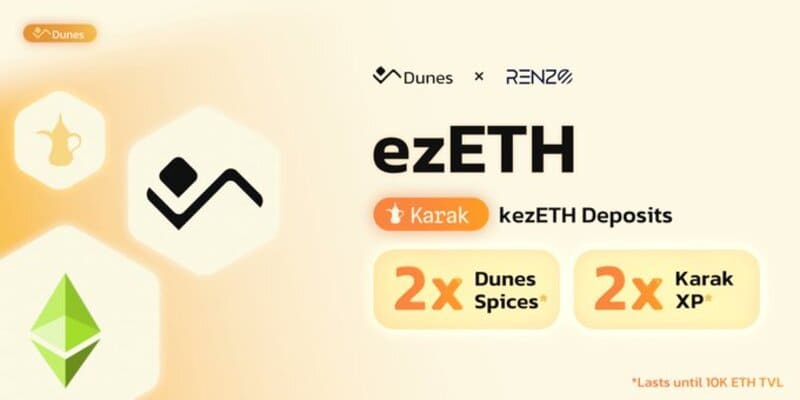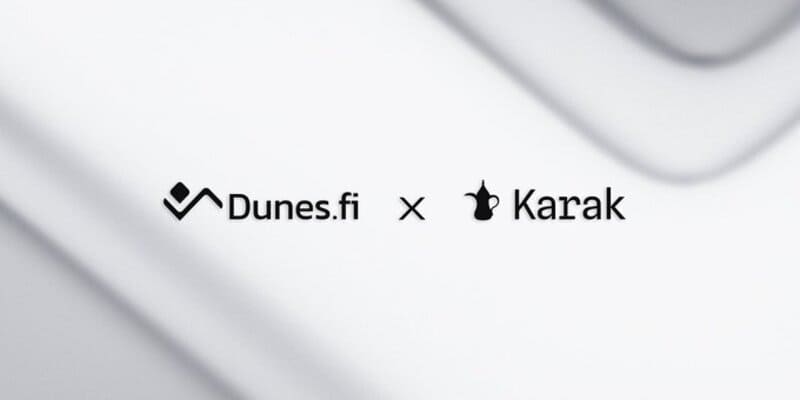In this article, you’ll discover everything you need to know about what is Dune token and how it can benefit you in the DeFi space. Keep reading to learn how to participate in the Dune ecosystem and unlock exciting rewards. Don’t miss any details!
What is Dune Token (DUNE)?
Dune Token (DUNE) is the native token for the Dunes platform, which solves one of the biggest challenges in the crypto space—liquidity for restaked assets. It allows users to unlock liquidity from assets that would otherwise remain tied up in restaking protocols like Karak Network or Lido. The goal of Dune is simple: give users more financial flexibility while still participating in the DeFi staking ecosystem. Restaking is relatively new, but it can be limiting if users can’t access their funds while they’re restaked. Dune changes that by providing a protocol where these assets become liquid again.

How Does Dune Protocol Work?
Restaking Concept
Restaking takes your staked assets, like Ethereum (ETH) or Lido Staked Ethereum (stETH), and stakes them again on another platform for additional rewards. However, when you restake, your assets become illiquid—meaning you can’t move them until you unstake, and that process can take days or even weeks.
Dune’s Approach to Liquidity
Dune solves this problem by creating a Liquid Restaking Token (LRT) protocol. When you stake assets on Dune, they provide you with liquid tokens that represent your staked positions. These tokens can be traded, sold, or used in other DeFi applications, all while your original assets continue earning staking rewards. This means you’re not locked out of opportunities simply because your assets are tied up in restaking.
Supported Assets
Dune supports a wide range of assets for staking, including:
- wstETH (Wrapped Staked Ethereum)
- weETH (Wrapped Ethereum)
- rsETH (Restaked Ethereum)
- ezETH and others.
This variety allows users to take advantage of different staking opportunities across multiple platforms, all while maintaining liquidity.
Earning DUNE Tokens: Points System and Spices
Spices Program
The way you earn DUNE tokens on the platform is through a points system called Spices. Think of Spices as reward points that accumulate when you stake assets on Dune. These Spices can later be converted into DUNE tokens once the token officially goes live.
The platform incentivizes users to accumulate Spices by staking their assets and making referrals. Each referral earns you 15% of the Spices your referred friends generate. Plus, for using a referral link, you’ll get an extra 5% bonus Spices.
Step-by-Step Guide for Staking
- Connect your Ethereum wallet to the Dunes dashboard.
- Stake supported assets like wstETH, weETH, or others.
- Start accumulating Spices through staking and referrals.
- Once the DUNE token is live, convert your Spices into DUNE.

Dune Tokenomics
Dune’s tokenomics are designed to ensure a fair and sustainable ecosystem. The total supply of DUNE tokens is capped at 10 billion. While details on the distribution of these tokens are still being finalized, a portion has already been set aside for early participants in the form of airdrops and staking rewards. There may also be vesting periods for certain tokens, especially those obtained through the airdrop, to prevent sudden price drops when the token becomes tradable.
DUNE Token Airdrop Details
One of the most exciting aspects of DUNE is the upcoming airdrop. Dune has confirmed that early participants, those who stake assets and accumulate Spices, will be eligible for a DUNE airdrop once the token officially launches. However, the exact amount of DUNE distributed per user is still unspecified.
To be eligible:
- You must stake assets on Dune.
- Accumulate Spices, which will later convert to DUNE tokens.
Dune has also hinted at partnerships with other DeFi platforms, meaning users who participate early on other platforms, like Karak Network, might also be eligible for DUNE tokens.
DUNE’s Future Potential and Roadmap
Dune has laid out an ambitious roadmap that promises continued innovation in the DeFi staking space. Upcoming features include:
- Cross-chain staking, allowing users to stake assets on multiple blockchains, not just Ethereum.
- New liquidity solutions for other illiquid asset types beyond Ethereum-based tokens.
- Partnerships with other DeFi projects, which will expand Dune’s reach and increase token utility.
The DUNE token will play a pivotal role in this ecosystem, giving holders governance rights, fee discounts, and access to exclusive staking pools.
How to Participate in the Dune Token Ecosystem
Step-by-Step Guide:
- Connect Ethereum Wallet: Visit the Dunes dashboard and connect your Ethereum wallet.
- Stake Assets: Stake assets such as wstETH, weETH, and others.
- Earn Spices: Start earning Spices, which will convert into DUNE tokens.
- Referral Program: Earn 15% of Spices generated by your referrals and an extra 5% for using referral links.
- Track Your Progress: Use the dashboard to monitor your staking and accumulated Spices.
- Prepare for Airdrop: Once DUNE goes live, claim your tokens by converting Spices.

Dune Token vs. Competitors
Karak Network
Karak Network also provides a restaking protocol, but it does not offer the same level of liquidity as Dune. While Karak users can earn staking rewards, their assets remain locked up. Dune gives users flexibility by providing liquid tokens for their staked assets, allowing them to trade or reinvest without losing access to their funds.
Lido
Lido is another major player in the staking space, offering staking solutions for Ethereum. However, Dune stands out by providing restaked liquidity—something Lido does not currently offer. This makes Dune the better option for users who want liquidity without sacrificing staking rewards.

